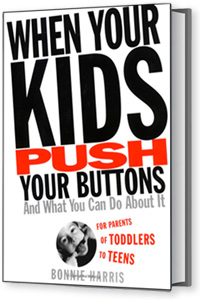In the wake of the recent college admissions scandal, my concern is with the students who are waking up to a whole new vision of themselves. Many of them from fifty known families—so far—apparently knew none of what their parents were up to—until now.

Some received a sports scholarship in a sport never played using photoshopped headshots; some had their SAT and ACT tests corrected by paid off proctors; some even had their tests taken for them. Coaches at the elites took huge amounts of money from an agent of a falsified non-profit who took even more from parents desperate to give their children a prestigious resume and a bumper sticker for their cars. The illegal non-profit allowed the parents to deduct their payments as donations.
Imagine what it must feel like to be that college student oblivious to what got you accepted? What happens to any trust you have in your parents—or any trust you thought they had in you? And then to find out your parents are under arrest for their illegal conduct. How could you not feel inadequate in your parents’ eyes knowing what they did to get you in? How must it feel to assume you deserved admittance only to learn oodles of money was your ticket?
Jack Buckingham was a bit remorseful. Jack is the son of Jane Buckingham, Los Angeles marketing executive and author of The Modern Girl’s Guide to Life. I would question her advice. Her daughter apparently gained admission through bribery to alter her ACT test. Her mother claimed she is “not a great test taker,” and has been arrested on a felony charge for paying an ACT proctor to take her son’s test. Jack told The Hollywood Reporter, “I know there are millions of kids out there both wealthy and less fortunate who grind their ass off just to have a shot at the college of their dreams. I am upset that I was unknowingly involved in a large scheme that helps give kids who may not work as hard as others an advantage over those who truly deserve those spots.”
Two Stanford University students have begun a growing movement on behalf of “qualified, rejected” students and filed a federal class action suit accusing eight schools of negligence.
Then, what of the students who knew all along and who feel perfectly entitled?
“They’re blowing this whole thing out of proportion,” Malcolm Abbott told the New York Post, “I believe everyone has a right to go to college, man.”

One would guess Olivia Jade Giannulli, the daughter of the indicted actress Lori Loughlin, knew what was going on when she posed on a rowing machine. Her parents allegedly passed her off as a rowing recruit, a sport she had never participated in. She told her followers on YouTube that she was there for the games and the parties, obviously not for the education.
Do these kids think they deserve to be where they are? Most have been on an entitled pedestal their whole lives and have never had to experience the ups and downs of success and failure on their own two feet. What of their futures after graduation? I suppose money will keep them on track. But what track? How will they know who they are?

Unethical college acceptance is the bucket of fool’s gold at the end of a long discolored, dysfunctional rainbow of over-involved parenting—or perhaps absent parents making up for lost time with the strings their money can pull. For years, children have been reaping the rewards from parents who snow-plowed their paths to glory.
From presents never denied, to activities allowed to quell fits of rage, inflated grades from a parent-coerced teacher, parent-produced school projects and homework, tutoring and advantages only money can buy, these kids have gotten their way all along. Do they deserve their advantages, or are they just lucky? Is the problem the spoiled, entitled kids who think they deserve anything they want, or the parents who make sure those advantages are offered, or the culture in which money and status have become increasingly necessary?

And how about the 35,000 kids who applied to Yale alone—diligent students who played by the rules seeking thousands in scholarship and student loans—who were denied admission only to learn it could have been stolen by an entitled rich kid?
How does this affect our culture’s moral fabric? What do these kids, both advantaged and disadvantaged, learn about fortitude, work ethic, achievement, and deserving?
As one of my Facebook followers put it, “This is another example of a parent not really seeing their kid, and instead just forcing through their vision of who that child should be, literally no matter the cost.”
If you had the money to make anything happen for your child, would you be tempted to use your advantage if you thought it would put your child on a successful life course? Would you be able to do the “right thing” if it meant your children losing out?

For eons, multi-million dollar donations have been an admission ticket. Money means grossly unfair advantages against people of color and students who play by the rules. But when bribery and cheating, illegality and immorality suffice for college entrance qualifications, the multitude of those denied have a right to outrage.
The job of a parent is to see, listen, learn from and support the child to find her own way over the humps and bumps of getting there, knowing she is capable. How can we be so presumptuous to think we know what is best for our children? Plain and simple–we don’t know. And to think we do, to believe we should because it’s “our job” not only puts us on a very fragile pedestal but truly hinders our relationship with our children.
The question to ask is, How do I support my child in finding his own way? Can you take yourself out of the picture long enough to see your child as separate from you on a path of his own? What if taking yourself (and your influence and money) out of the picture means your child might fail?
The slippery slope starts with harried, tired parents who give in “just this once” to a screaming, demanding child. Or it’s a parent who believes that his child’s wants and needs have top priority. Or it’s a parent who cannot bear to experience her child’s suffering, pain, or disappointment. Or it’s a parent who sees himself reflected in his child’s achievements because down deep he has a message of inadequacy.
This slippery slope for all, not just the wealthy, needs buffering when children are young. Not just so they get used to not always getting their way, but more importantly so you don’t get used to giving it. The more you give, the harder it becomes to withhold, and the meaner it seems to do so.

These entitled kids will not know how to get along on their own. They will depend on others to pave their way. Some will find the pavers; many will flounder. Many will sideline the deserving and underprivileged to get ahead—because they can.
For your children to succeed they need resilience and grit. This means allowing your children disappointment, boredom, argument, anger, and defeat. It may mean failure. But on the other side of defeat is the space where strength and success from achievement reside and where true deserving can be deeply known.

It takes a lot of faith and trust in your child to know that you can allow failure and your child will endure and come out the other end stronger for it.
Let’s hope that the “Me-First” operation (not my coinage, but I love it) has the legs of the #MeToo movement.
 We punish our children in an attempt to keep them from pushing our buttons, often escalating the original problem into a cycle of anger and blame. When Your Kids Push Your Buttons is not about what to do to your kids to get them to stop pushing your buttons. This book is about how to be the parent you wish you could be-the parent that only you are holding yourself back from.
We punish our children in an attempt to keep them from pushing our buttons, often escalating the original problem into a cycle of anger and blame. When Your Kids Push Your Buttons is not about what to do to your kids to get them to stop pushing your buttons. This book is about how to be the parent you wish you could be-the parent that only you are holding yourself back from.
Related Articles:







